College Classes on the Nature of Reality Reading List
A short history of nearly everything by Neb Bryson
Suggested past Richard Brown, Reach Out Makerspace Technician
 Best known for his humorous travel books, this is a slight detour for the writer, only i that is filled with the engaging enthusiasm of someone discovering science in all its wonder and peculiarities [plus some luck, bizarre occurrences and tragedy] as if travelling a new continent. This is by no means a heavy tone but you lot will find yourself educated and entertained. I would repeatedly find myself so engrossed in its pages, many times reading into the small hours of the forenoon.
Best known for his humorous travel books, this is a slight detour for the writer, only i that is filled with the engaging enthusiasm of someone discovering science in all its wonder and peculiarities [plus some luck, bizarre occurrences and tragedy] as if travelling a new continent. This is by no means a heavy tone but you lot will find yourself educated and entertained. I would repeatedly find myself so engrossed in its pages, many times reading into the small hours of the forenoon.
8000 metres climbing the world'due south highest mountains past Alan Hinkes
Suggested past Manish Patel, Document Delivery Coordinator, Library Services

The book is primarily about adventurer mountaineering, climbing the globe'southward highest mountains. The themes covered inside information technology include the natural environment, Climates, Geology and Geography. Human being physiology, endurance; survival in extreme weather condition. The author, previously working every bit a teacher, became an international mountain guide and accomplished reaching the highest summits. The book adds inspiration to the subjects and a spirit of gamble others might want to pursue.
The Science Book, Big Ideas Simply Explained by by Rob Colson (Editor), Camilla Hallinan (Editor), David John (Editor), Adam Hart-Davis
Suggested past Zhendan Shang, Postgraduate Earth Science & Engineering
 I would like to recommend this book considering I thought that it was a really expert read. The book showcased the ingenuity of humanity in exploring and understanding the wonders of the globe around them, the diverse methods that the corking minds of the by used to investigate the world, and the thinking behind various facts that we may take for granted today. I also like that it covers a wide range of topics in science, from biology, physics, chemistry to geology, gives an outline of the history of how nosotros reached our current agreement of the world, and touches on the latest advances in the scientific domain where active enquiry is currently being done. I think its greatest selling point is that it instils a scientific method of how to retrieve critically about nature with lots of quirky drawings and diagrams. Information technology'south a actually good starting betoken for anyone more often than not curious virtually the natural world and how our current knowledge of the world came to exist.
I would like to recommend this book considering I thought that it was a really expert read. The book showcased the ingenuity of humanity in exploring and understanding the wonders of the globe around them, the diverse methods that the corking minds of the by used to investigate the world, and the thinking behind various facts that we may take for granted today. I also like that it covers a wide range of topics in science, from biology, physics, chemistry to geology, gives an outline of the history of how nosotros reached our current agreement of the world, and touches on the latest advances in the scientific domain where active enquiry is currently being done. I think its greatest selling point is that it instils a scientific method of how to retrieve critically about nature with lots of quirky drawings and diagrams. Information technology'south a actually good starting betoken for anyone more often than not curious virtually the natural world and how our current knowledge of the world came to exist.
Stem Book List General Science (PDF)
Photo i by Colin Behrens from Pixabay; Photograph 2from Pixabay; Photograph iii by Thomas Angus Purple Higher London
Why evolution is true by Jerry Coyne
Katherine Davi s, Research Postgraduate School of Public Wellness
 I read "Why Evolution is True" for the first time later on I decided to study biology at university. I loved the way Coyne weaves together unlike fields, including genetics, molecular biology and beefcake, with colourful and interesting examples from across the living world. Everything is linked in a clear and accessible way to the cardinal argument - Coyne takes a true scientist's approach equally he tours the testify and examines the details. Reading this volume, I began to understand how evolution is the gilded thread tying together all of the fields of biology - information technology changed my perspective on the natural world. If you're interested in studying biology, or agreement development, I would thoroughly recommend picking upwards this book!
I read "Why Evolution is True" for the first time later on I decided to study biology at university. I loved the way Coyne weaves together unlike fields, including genetics, molecular biology and beefcake, with colourful and interesting examples from across the living world. Everything is linked in a clear and accessible way to the cardinal argument - Coyne takes a true scientist's approach equally he tours the testify and examines the details. Reading this volume, I began to understand how evolution is the gilded thread tying together all of the fields of biology - information technology changed my perspective on the natural world. If you're interested in studying biology, or agreement development, I would thoroughly recommend picking upwards this book!
The bullheaded watchmaker by Richard Dawkins
Suggested past Dr Jenny Cooke, Mentoring and Tutoring Programme, Manager
 The Bullheaded Watchmaker explores the theory of evolution and was published after Dawkin's most well- known book, The Selfish Gene (where the term meme is first used!). I read it when I was studying A levels and found it really clear and easy to read. I loved reading a book about science that contained lots of scientific facts and information just also used examples and eloquent writing to form persuasive arguments. The simple descriptions taught at school around natural selection brand sense just when you wait at the world and the amazing complexity of living creatures it does sometimes seem impossible that this could happen by chance - this volume gives you lot confidence that this could happen! I have read a few of Dawkin's after books which I institute a little too potent in their anti-creationist arguments but this book balances this well.
The Bullheaded Watchmaker explores the theory of evolution and was published after Dawkin's most well- known book, The Selfish Gene (where the term meme is first used!). I read it when I was studying A levels and found it really clear and easy to read. I loved reading a book about science that contained lots of scientific facts and information just also used examples and eloquent writing to form persuasive arguments. The simple descriptions taught at school around natural selection brand sense just when you wait at the world and the amazing complexity of living creatures it does sometimes seem impossible that this could happen by chance - this volume gives you lot confidence that this could happen! I have read a few of Dawkin's after books which I institute a little too potent in their anti-creationist arguments but this book balances this well.
The omnivore'south dilemma: A natural history of 4 meals by Michael Pollan
Suggested by Joanna L Clasen, Research Postgraduate Schoolhouse of Public Health
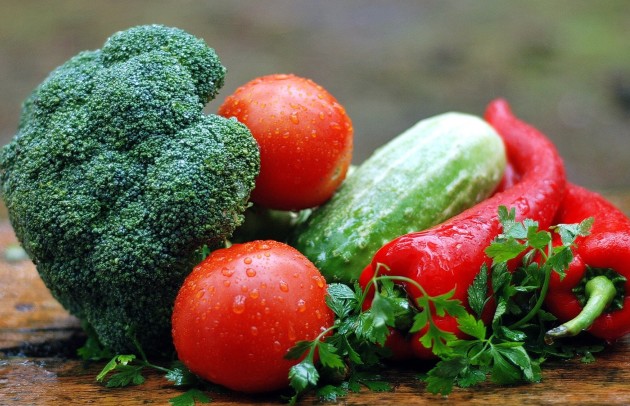 As a fan of cooking, and food in general, I found this book to be a fascinating read. It cuts across disciplines and shows the interwoven complication of how scientific discipline, economics, and culture influence our diets. The author takes a seemingly ordinary topic and turns information technology into an interesting and easy read. I am a student working in nutritional epidemiology, and I love books that provide a different perspective on food and nutrition.
As a fan of cooking, and food in general, I found this book to be a fascinating read. It cuts across disciplines and shows the interwoven complication of how scientific discipline, economics, and culture influence our diets. The author takes a seemingly ordinary topic and turns information technology into an interesting and easy read. I am a student working in nutritional epidemiology, and I love books that provide a different perspective on food and nutrition.
The private life of plants by David Attenborough
Suggested past Dr Annalisa Alexander, Caput of Outreach
 I've always been fascinated by plants ever since I was very immature when someone gave me a Venus Fly Trap. Watching information technology catch flies (and mayhap over triggering information technology with a little prod here and there) fabricated me desire to know why it did it and what it did with the wing once its 'jaws' had closed. I watched the Boob tube series that accompanied this volume many years ago and I was amazed at simply how incredible plants truly are. The book takes you through every role of a institute's life cycle, using examples, stunning photography and astounding facts. If you think that they are just irksome dark-green things that grow, make flowers, look dainty and go us out of a trouble when we've forgotten a birthday, think over again…. You'll learn just how sophisticated some are, how they can replicate insect pheromones or produce ultra violet light to attract the right pollinators, aggressively stop other plants encroaching on their infinite and actually repel other organisms with a hideous stench. I challenge you NOT to be amazed past just how highly evolved some plants are. Yous'll never wait at an orchid in the same light…. Literally…
I've always been fascinated by plants ever since I was very immature when someone gave me a Venus Fly Trap. Watching information technology catch flies (and mayhap over triggering information technology with a little prod here and there) fabricated me desire to know why it did it and what it did with the wing once its 'jaws' had closed. I watched the Boob tube series that accompanied this volume many years ago and I was amazed at simply how incredible plants truly are. The book takes you through every role of a institute's life cycle, using examples, stunning photography and astounding facts. If you think that they are just irksome dark-green things that grow, make flowers, look dainty and go us out of a trouble when we've forgotten a birthday, think over again…. You'll learn just how sophisticated some are, how they can replicate insect pheromones or produce ultra violet light to attract the right pollinators, aggressively stop other plants encroaching on their infinite and actually repel other organisms with a hideous stench. I challenge you NOT to be amazed past just how highly evolved some plants are. Yous'll never wait at an orchid in the same light…. Literally…
STEM Book Listing Biological science (PDF)
Photograph ane by Arpat Ozgul Imperial Higher London; Photo ii by Beth Elzer Regal College London; P hoto three by Jerzy Górecki fromPixabay; Photo 4 past Thomas Angus Imperial College London
The disappearing spoon by Sam Kean
Suggested past Daisy Rogers-Simmonds, Research Postgraduate Chemistry
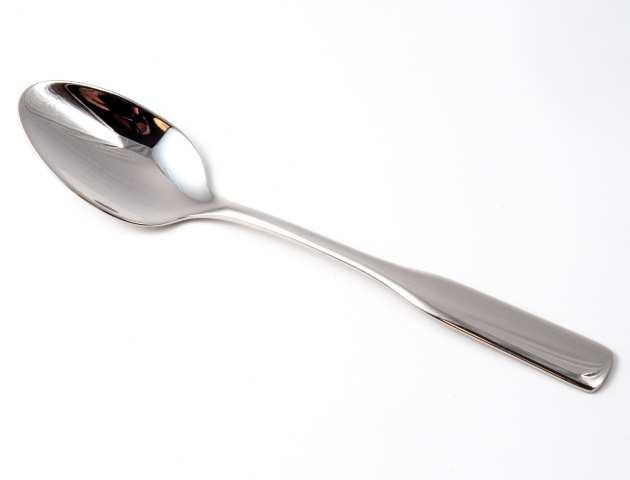 I recommend this book for anyone with an involvement in chemistry. The author takes you on a bout of the periodic tabular array, showcasing how a diverseness of elements from the notorious to the obscure have driven advancements in chemistry. The author places an accent on how these advancements in chemistry have impacted health, politics, economics, war and technology – and how it has not always, knowingly or unknowingly, been used for good. A focus on the societal impact of chemistry is effectively used as a vehicle to introduce higher-level concepts in chemistry that reach beyond the syllabus. The primary reason that I actually love this book and come up back to information technology fourth dimension and time again is the way that key scientific figures are actually brought to life. Kean paints a full and thoroughly unvarnished picture of famous people like Marie Curie and really makes them feel human, rather than the abstract, one-dimensional characters they are often portrayed as. It's certainly not a textbook, but I call up information technology does a good job of introducing the breadth of chemistry.
I recommend this book for anyone with an involvement in chemistry. The author takes you on a bout of the periodic tabular array, showcasing how a diverseness of elements from the notorious to the obscure have driven advancements in chemistry. The author places an accent on how these advancements in chemistry have impacted health, politics, economics, war and technology – and how it has not always, knowingly or unknowingly, been used for good. A focus on the societal impact of chemistry is effectively used as a vehicle to introduce higher-level concepts in chemistry that reach beyond the syllabus. The primary reason that I actually love this book and come up back to information technology fourth dimension and time again is the way that key scientific figures are actually brought to life. Kean paints a full and thoroughly unvarnished picture of famous people like Marie Curie and really makes them feel human, rather than the abstract, one-dimensional characters they are often portrayed as. It's certainly not a textbook, but I call up information technology does a good job of introducing the breadth of chemistry.
Uncle Tungsten – memories of a chemical adolescence by Oliver Sacks
Suggested by Daniel Glass, Enquiry Postgraduate Physics
 An autobiography similar you've never seen it. Coming from a big very scientific family Oliver Sacks walks you through his life in chemistry, from a child's fascination of science and nature to his early career days. Aside from seeing a whole range of elements and compounds in a calorie-free yous never thought was possible, Sacks presents a history of chemistry and science through his journeying of discovery. Although the book focuses primarily on Sacks'south chemistry adventures the book appeals to all, from the young budding scientist to a renown professor. Every bit y'all turn through the pages y'all get to bring together the experiments, excitement and the memories of a chemical boyhood during war time Briton. The book portrays an admiral raw passion and excitement for the thrill and discovery of science.
An autobiography similar you've never seen it. Coming from a big very scientific family Oliver Sacks walks you through his life in chemistry, from a child's fascination of science and nature to his early career days. Aside from seeing a whole range of elements and compounds in a calorie-free yous never thought was possible, Sacks presents a history of chemistry and science through his journeying of discovery. Although the book focuses primarily on Sacks'south chemistry adventures the book appeals to all, from the young budding scientist to a renown professor. Every bit y'all turn through the pages y'all get to bring together the experiments, excitement and the memories of a chemical boyhood during war time Briton. The book portrays an admiral raw passion and excitement for the thrill and discovery of science.
Periodic tales: The curious lives of the elements past Hugh Aldersey-Williams
Suggested pastDr Mel Bottrill, Deputy Caput of Outreach
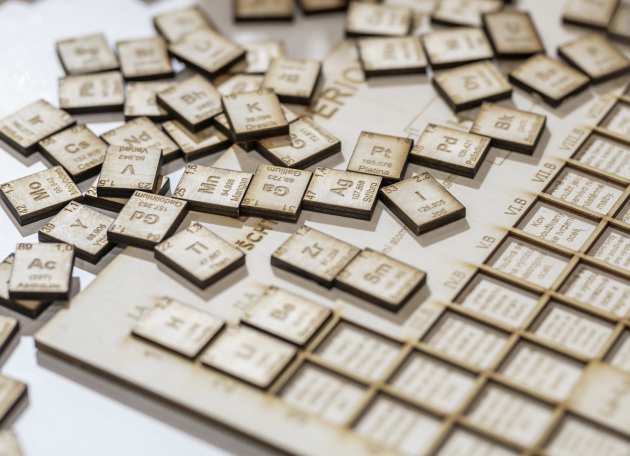 Equally a complete nerd about the periodic table, I love this book because information technology showcases the human stories backside the elements. The periodic table is something that I plant intimidating every bit a school student, just equally I studied chemical science at A-Level I began to love and to realise how cute I found information technology. Nosotros ofttimes see it as a tool, concentrating on its properties and patterns, but it is so much more and this book demonstrates how much more than it is. It is a bout of discovery, outlining the stories of the different discoveries of the elements, the people that discovered them and interesting and funny facts about how they are used – about a travelogue of the elements. You don't have to be studying chemistry to find something enjoyable virtually this book!
Equally a complete nerd about the periodic table, I love this book because information technology showcases the human stories backside the elements. The periodic table is something that I plant intimidating every bit a school student, just equally I studied chemical science at A-Level I began to love and to realise how cute I found information technology. Nosotros ofttimes see it as a tool, concentrating on its properties and patterns, but it is so much more and this book demonstrates how much more than it is. It is a bout of discovery, outlining the stories of the different discoveries of the elements, the people that discovered them and interesting and funny facts about how they are used – about a travelogue of the elements. You don't have to be studying chemistry to find something enjoyable virtually this book!
Stuff Matters: Exploring the Marvelous Materials That Shape Our Man-Made World past Mark Miodownik
Suggested by Louise Li, Undergraduate Chemistry pupil
 Having never studied Materials Science at schoolhouse, this booked tapped into a whole new world that I had never previously given much thought to. The blurb captured my attention instantly, and I was keen to notice more about the ordinary and non-then-ordinary materials that accept shaped the lives of humanity, and continue to be developed in advanced research labs across the world.
Having never studied Materials Science at schoolhouse, this booked tapped into a whole new world that I had never previously given much thought to. The blurb captured my attention instantly, and I was keen to notice more about the ordinary and non-then-ordinary materials that accept shaped the lives of humanity, and continue to be developed in advanced research labs across the world.
Told in the first person, as a story of the author going about his daily routine, the book encompasses objects and affair from every aspect of life: From ornate tea-cups to dynamic jet engines, and silicon chips to the fabrics of our t-shirts. Stuff Matters is a highly entertaining read, accessible to all and every bit 1 of the first "popular science" books I ever read (that besides featured in my personal statement!), I cannot recommend information technology enough!
CHEMISTRY - A Very Short Introduction by Peter Atkins
Suggested by Diana Tanase, Enquiry Postgraduate Chemistry
 I love chemistry but I met enough of people who not only struggle to understand why I love chemical science, but also question my sanity. Peter Atkins' short introduction to the world of chemistry has been an amazing resource of defence force arguments for me. Atkins is a proper name about chemists will recognize because he has written some amazing physical chemistry textbooks. His insight and exposure to the field brand this short book a great introduction into what chemistry is and how it has revolutionised the globe nosotros alive in. I recommend this book if you are getting ready to write your personal statement or if you lot are just trying to effigy out why people study chemistry. Peter Atkins' passion and enthusiasm actually are contagious!
I love chemistry but I met enough of people who not only struggle to understand why I love chemical science, but also question my sanity. Peter Atkins' short introduction to the world of chemistry has been an amazing resource of defence force arguments for me. Atkins is a proper name about chemists will recognize because he has written some amazing physical chemistry textbooks. His insight and exposure to the field brand this short book a great introduction into what chemistry is and how it has revolutionised the globe nosotros alive in. I recommend this book if you are getting ready to write your personal statement or if you lot are just trying to effigy out why people study chemistry. Peter Atkins' passion and enthusiasm actually are contagious!
STEM Book List Chemistry (PDF)
Photo 1 by Walter Bichler from Pixabay; Photo two by Bokskapetfrom Pixabay; Photo 3 by Vubp from Pixabay; Photo iv by Thomas Angus Imperial College London; Photo v by Michele Panzeri Royal College London
How to lie with statistics by Darrell Huff
Suggested by Maria Portela, Undergraduate Bioengineering
 This is a book that volition make yous question every single statistical figure you have always encountered. It is not intended to be a form in statistics, and in fact, there are no equations on information technology. Instead, information technology uses many examples to testify how easy it is to build misleading arguments and lists several devices past which data tin be manipulated (willingly or not) to force a meaningless conclusion. When I studied statistics in high school, I institute it hard to break abroad from mathematical descriptions and understand how to apply them to the real earth. This book was actually helpful to put those concepts into perspective, do spotting statistical artefacts, and rethink the mode I read scientific studies. It is written in a adept-humoured, fast-paced manner, quite easy to follow, and heavily illustrated. All the same, the book is from the 50s so do bear in mind some linguistic communication and examples are terribly outdated. The primary points are notwithstanding valid, maybe even more, today, in our data-driven globe, than they were 70 years ago.
This is a book that volition make yous question every single statistical figure you have always encountered. It is not intended to be a form in statistics, and in fact, there are no equations on information technology. Instead, information technology uses many examples to testify how easy it is to build misleading arguments and lists several devices past which data tin be manipulated (willingly or not) to force a meaningless conclusion. When I studied statistics in high school, I institute it hard to break abroad from mathematical descriptions and understand how to apply them to the real earth. This book was actually helpful to put those concepts into perspective, do spotting statistical artefacts, and rethink the mode I read scientific studies. It is written in a adept-humoured, fast-paced manner, quite easy to follow, and heavily illustrated. All the same, the book is from the 50s so do bear in mind some linguistic communication and examples are terribly outdated. The primary points are notwithstanding valid, maybe even more, today, in our data-driven globe, than they were 70 years ago.
Humble Pi, by Matt Parker
Suggested by Ela Kemp, Makerspace Leader
What'south not to like - clever people getting it incorrect!...and the consequences t hat follow!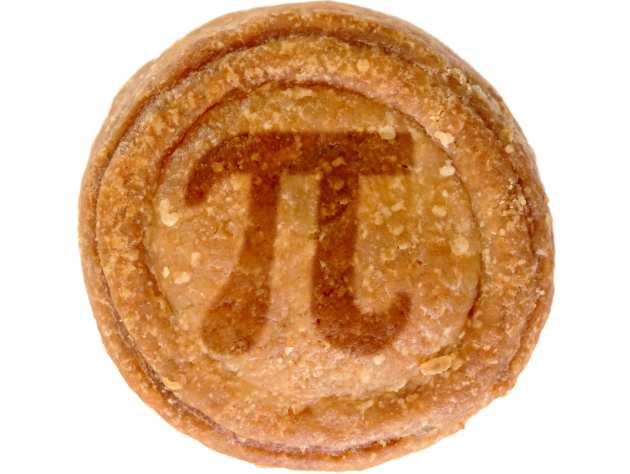
Factfulness by Hans Rosling
Suggested past Alessandra Lochen, Research Postgraduate School of Public Heath
 By the late statistician, which is a data-driven look into misconceptions effectually global health and economic inequality. Very light and like shooting fish in a barrel read for those non familiar with the topics.
By the late statistician, which is a data-driven look into misconceptions effectually global health and economic inequality. Very light and like shooting fish in a barrel read for those non familiar with the topics.
Why does E=mc2? By Brian Cox and Jeff Forshaw
Suggested past Scott Marley, Outreach Leader
 I have to acknowledge to being a little biased on this one, as Brian Cox and Jeff Forshaw both taught me physics at Manchester a long time agone! This is a highly readable and attainable caption of the theory of relativity with a minimal amount of mathematics. If you desire something with a scrap more mathematical oomph, then become for another book by the same authors, 'The Breakthrough Universe: Everything that can happen, volition happen'.
I have to acknowledge to being a little biased on this one, as Brian Cox and Jeff Forshaw both taught me physics at Manchester a long time agone! This is a highly readable and attainable caption of the theory of relativity with a minimal amount of mathematics. If you desire something with a scrap more mathematical oomph, then become for another book by the same authors, 'The Breakthrough Universe: Everything that can happen, volition happen'.
Fermat's final theorem by Simon Singh
Suggested by Scott Marley, Outreach Leader
 Can a book about mathematics be impossible to put down? This one is! Fermat's last theorem reads like the most gripping of detective novels with the detectives involved spanning 400 years from Fermat to Andrew Wiles. Along the fashion, we meet Euler, Cauchy, Turing, Hilbert, and many other greats of the mathematical globe, and see how one man's obsessions finally cracked a seemingly unsolvable problem.
Can a book about mathematics be impossible to put down? This one is! Fermat's last theorem reads like the most gripping of detective novels with the detectives involved spanning 400 years from Fermat to Andrew Wiles. Along the fashion, we meet Euler, Cauchy, Turing, Hilbert, and many other greats of the mathematical globe, and see how one man's obsessions finally cracked a seemingly unsolvable problem.
STEM Book List Maths (PDF)
Photograph 1 past Gerd Altmann from Pixabay; Photo 2 by Andrew MartinfromPixabay; Photo 3 by stokpicfromPixabay; Photo 4 past Jackie RamirezfromPixabay; Photo 5 by Hebi BfromPixabay
Structures: Or why things don't autumn down by J. E. Gordon
Suggested past Michael D Jones, Research Postgraduate Mechanical Engineering
 Structures is a brilliant introductory book into the world of structural theory. I get-go read it effectually the fourth dimension I was making my applications to university to study mechanical engineering science. I wanted to become an idea of the sort of subjects that would be covered in my course. This book is specially good due to its adequately informal style. Although it focuses a lot on principles that are the bedrock of engineering science assay, it is by no ways like a text book. Gordon's tone is much more conversational, and throughout the text he constantly references his own experiences alongside various other anecdotes and instance studies, both from nature and the man fabricated globe. This gives the reader a good appreciation not only of how we have applied principles in order to create a broad range of structures, but also critically highlights a number of the incidents of structural failure that have led to step changes and improvements in our understanding. A must read for prospective students looking to apply for mechanical, civil, aeronautical and biomedical engineering.
Structures is a brilliant introductory book into the world of structural theory. I get-go read it effectually the fourth dimension I was making my applications to university to study mechanical engineering science. I wanted to become an idea of the sort of subjects that would be covered in my course. This book is specially good due to its adequately informal style. Although it focuses a lot on principles that are the bedrock of engineering science assay, it is by no ways like a text book. Gordon's tone is much more conversational, and throughout the text he constantly references his own experiences alongside various other anecdotes and instance studies, both from nature and the man fabricated globe. This gives the reader a good appreciation not only of how we have applied principles in order to create a broad range of structures, but also critically highlights a number of the incidents of structural failure that have led to step changes and improvements in our understanding. A must read for prospective students looking to apply for mechanical, civil, aeronautical and biomedical engineering.
The Mars trilogy past Kim Stanley-Robinson
Suggested by Michael D Jones, Research Postgraduate Mechanical Engineering
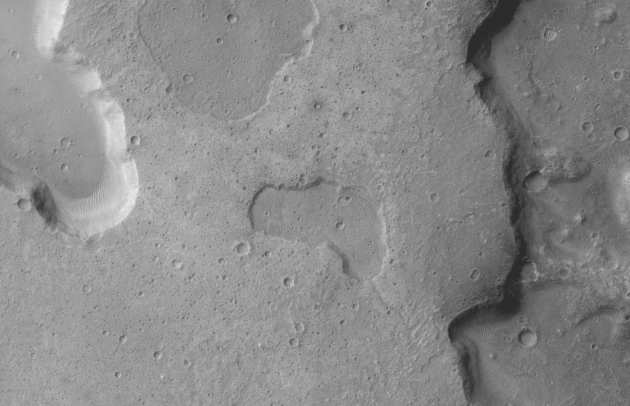 Comprising of Red Mars, Green Mars and Blue Mars, the trilogy is an epic tale of how humans might colonise Mars. The writer has put an immense corporeality of endeavor into researching a myriad of topics that would be encountered if we were to attempt and start a civilization on the Ruby-red Planet, starting with the challenges faced past sending an initial colony to such a hostile world, as yet untouched by humanity, travelling right through to the politics and social issues associated with forming a new state on a different celestial torso. The books not only follow the story of humanity as a whole on their journey beyond the solar system, but also of a number of interesting and varied protagonists, each fighting for their ain vision of how society should found itself on Mars. A fantastic read, both entertaining and thought provoking.
Comprising of Red Mars, Green Mars and Blue Mars, the trilogy is an epic tale of how humans might colonise Mars. The writer has put an immense corporeality of endeavor into researching a myriad of topics that would be encountered if we were to attempt and start a civilization on the Ruby-red Planet, starting with the challenges faced past sending an initial colony to such a hostile world, as yet untouched by humanity, travelling right through to the politics and social issues associated with forming a new state on a different celestial torso. The books not only follow the story of humanity as a whole on their journey beyond the solar system, but also of a number of interesting and varied protagonists, each fighting for their ain vision of how society should found itself on Mars. A fantastic read, both entertaining and thought provoking.
Stalk Book List Mechanical Engineering (PDF)
Photo ane past Thomas Angus Imperial College London; Photograph ii Courtesy of NASA Royal College London
Dauntless new world by Aldous Huxley
Suggested by Helen Sharman, UK Outreach Administrator
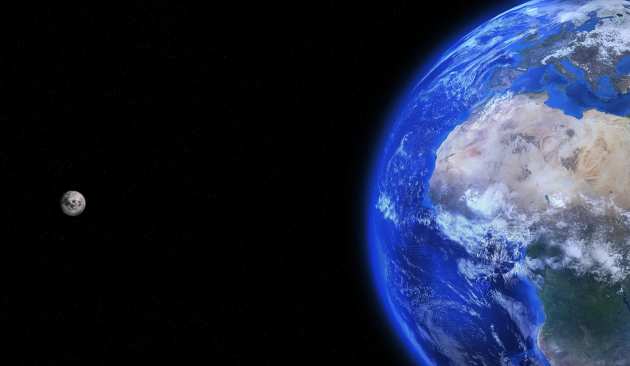 Set in a futuristic social and political earth, although written style dorsum in 1931, this book made me remember virtually how society uses science, in particular that the aforementioned knowledge tin can be used for good or bad purposes. It is amazingly inciteful, given that it was written way before IVF was adult and before we knew what we do about foetal development, yet it provokes thought about genetic applied science and other ways we alter and conform as humans. I really liked the way the principal character held opinions based on logic that were against what everyone else had been made to think. For me, science wins over unthinking conditioning whatever day!
Set in a futuristic social and political earth, although written style dorsum in 1931, this book made me remember virtually how society uses science, in particular that the aforementioned knowledge tin can be used for good or bad purposes. It is amazingly inciteful, given that it was written way before IVF was adult and before we knew what we do about foetal development, yet it provokes thought about genetic applied science and other ways we alter and conform as humans. I really liked the way the principal character held opinions based on logic that were against what everyone else had been made to think. For me, science wins over unthinking conditioning whatever day!
The man who mistook his wife for a hat by Oliver Sacks
Suggested by Rebecca Sweeney, Reach Out Makerspace Assistant
 A fascinating await into the curious and bewildering effects when something in the encephalon goes wrong. Neurologist Oliver Sacks shares a collection of case histories of patients he has treated for bizarre neurological disorders, recounting extraordinary tales of profound amnesias, photographic memory, 'seeing' musical sounds, phantom limbs, and a man whose visual agnosia meant he perceived his wife every bit a hat. I honey this book considering it poignantly illustrates both the fragility of our 1.5kg brain and its remarkable ability to recoup for cognitive deficiencies, often with comical yet wondrous consequences.
A fascinating await into the curious and bewildering effects when something in the encephalon goes wrong. Neurologist Oliver Sacks shares a collection of case histories of patients he has treated for bizarre neurological disorders, recounting extraordinary tales of profound amnesias, photographic memory, 'seeing' musical sounds, phantom limbs, and a man whose visual agnosia meant he perceived his wife every bit a hat. I honey this book considering it poignantly illustrates both the fragility of our 1.5kg brain and its remarkable ability to recoup for cognitive deficiencies, often with comical yet wondrous consequences.
The ghost map by Steven Berlin Johnson
Suggested by Ahreum Jung, Invention Room Associate: Hacking and Making
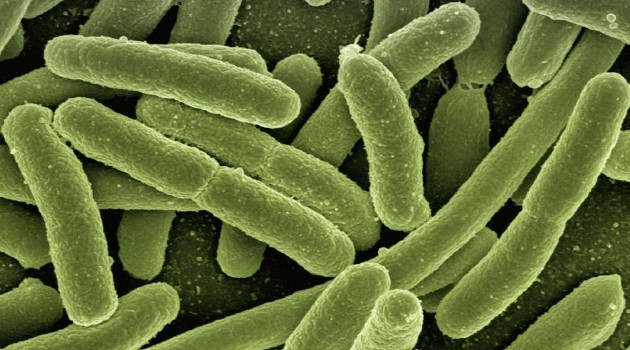 The Ghost Map: The story of London'due south most terrifying epidemic – and how it inverse science, cities and the modern world is a volume past Steven Berlin Johnson in which he describes the most intense outbreak of cholera in Victorian London and centers on John Snow and Henry Whitehead.
The Ghost Map: The story of London'due south most terrifying epidemic – and how it inverse science, cities and the modern world is a volume past Steven Berlin Johnson in which he describes the most intense outbreak of cholera in Victorian London and centers on John Snow and Henry Whitehead.
Happy accidents: Serendipity in modernistic medical breakthroughs past Morton A. Meyers
Suggested past Elzbieta Lauzikaite, Research Postgraduate Dept of Metabolism, Digestion and Reproduction
 An highly entertaining volume on the role of serendipity in medical inquiry, covering the nigh important discoveries in the 20th century. It reminded me of the importance of an open up and artistic mind, and that not everything in scientific discipline goes according to a plan.
An highly entertaining volume on the role of serendipity in medical inquiry, covering the nigh important discoveries in the 20th century. It reminded me of the importance of an open up and artistic mind, and that not everything in scientific discipline goes according to a plan.
Spillover past David Quammen
Suggested pastMegan Joseph, Administrator, Student Recruitment and Outreach
 Information technology'southward a book all nigh animal infections and the next homo pandemic which is obviously very topical right now only regardless of the current situation this book is a great read!
Information technology'southward a book all nigh animal infections and the next homo pandemic which is obviously very topical right now only regardless of the current situation this book is a great read!
Information technology focuses on specific examples of crossover events from animals to humans for sure diseases and gives yous the story behind the events as well equally the science.
Together: The Healing Power of Homo Connexion in a Sometimes Lone World by Vivek Murthy
Suggested byLauren Wheeler, 1st twelvemonth Medical Biosciences pupil
 Whilst learning about human biological science, I have ever been fascinated by the interplay between what goes on in the body and in the mind. Information technology'southward astonishing to think that within a thing of milliseconds our thoughts and perceptions can profoundly affect our physiology, and vice versa. Together, a new book from the sometime surgeon general of the United states, explores what he has come to view as the greatest public health business concern of our time: loneliness.
Whilst learning about human biological science, I have ever been fascinated by the interplay between what goes on in the body and in the mind. Information technology'southward astonishing to think that within a thing of milliseconds our thoughts and perceptions can profoundly affect our physiology, and vice versa. Together, a new book from the sometime surgeon general of the United states, explores what he has come to view as the greatest public health business concern of our time: loneliness.
Shark Gets Cancer, Mole Rats Don't by Dr James Welsh
Suggested by Krish Gadhvi, 1st yr Medical pupil
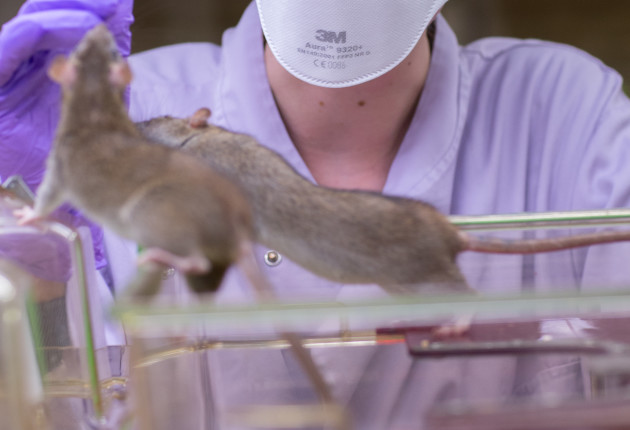 This is a fascinating read on the nature of cancer and a cursory look into cancer in the animate being kingdom. The author prefaces the volume by examining a previously popular myth (A volume was previously written that encouraged people to purchase shark cartilage supplements with the agreement that shark cartilage could cure or prevent cancer). If yous desire an introduction into cancer pathology and to examine cancer from a fresh perspective, this book will be a good fit!
This is a fascinating read on the nature of cancer and a cursory look into cancer in the animate being kingdom. The author prefaces the volume by examining a previously popular myth (A volume was previously written that encouraged people to purchase shark cartilage supplements with the agreement that shark cartilage could cure or prevent cancer). If yous desire an introduction into cancer pathology and to examine cancer from a fresh perspective, this book will be a good fit!
The Emperor of All Maladies by Siddhartha Mukherjee
Suggested by Kyle Greenland, Inquiry Postgraduate, Department of Surgery & Cancer
 I read this book while still deciding what I wanted to study for undergraduate in Yr 12. The volume tells the history of cancer biology and its handling. Information technology highlights how far our understanding of the molecular basis of cancer has developed and how researchers accept used this knowledge to design better cancer therapeutics. I especially liked this volume as I was always interested in human biological science but did not want to study medicine. I think this book does a neat job of emphasising how clinical medicine is underpinned by scientific breakthroughs in the lab. Would highly recommend it!
I read this book while still deciding what I wanted to study for undergraduate in Yr 12. The volume tells the history of cancer biology and its handling. Information technology highlights how far our understanding of the molecular basis of cancer has developed and how researchers accept used this knowledge to design better cancer therapeutics. I especially liked this volume as I was always interested in human biological science but did not want to study medicine. I think this book does a neat job of emphasising how clinical medicine is underpinned by scientific breakthroughs in the lab. Would highly recommend it!
Stem Book List Medicine (PDF)
Photograph 1 by Arek Socha fromPixabay; Photograph ii Alexander LesnitskyfromPixabay; Photo iii by Gerd Altmann fromPixabay; Photo iv past Bob Williams from Pixabay; Photos 5-viii Royal College London
The quantum universe: Everything that can happen does happen" by Jeff Forshaw and Brian Cox
Suggested by Joe Sykes, Research Postgraduate Mathematics
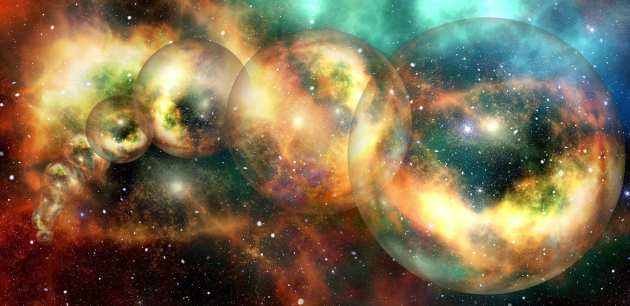 This was the book that opened my eyes to the strange quantum aspect of physics (something that is hardly ever touched on in A level physics but underpins all of physics) and ultimately made up my listen that I needed to go to university and practise physics because I needed to understand how this weird (and in my nerdy opinion very absurd) quantum stuff worked. The book is very accessible as information technology is written for the general public and isn't too mathematical and is very skillful at intriguing the reader to desire to notice out more than.
This was the book that opened my eyes to the strange quantum aspect of physics (something that is hardly ever touched on in A level physics but underpins all of physics) and ultimately made up my listen that I needed to go to university and practise physics because I needed to understand how this weird (and in my nerdy opinion very absurd) quantum stuff worked. The book is very accessible as information technology is written for the general public and isn't too mathematical and is very skillful at intriguing the reader to desire to notice out more than.
The perfect theory: A century of geniuses and the battle over full general relativity by Pedro Thousand. Ferreira
Suggested by Renee Boling, STEM Programmes Coordinator Pre-16
 As an aerospace engineer I have e'er been fascinated by space and the office of gravity in the universe. When Einstein published his theory of full general relativity in 1915 little did he know where it would take united states of america. This book is the biography not of a person, but an thought. It follows the life of the theory through the brilliant physicists, mathematicians and astronomers who studied, challenged and expanded our knowledge of the universe with this theory from black holes to the breakthrough discoveries happening at the Large Hadron Collider today. Written for those with no science or mathematical backgrounds it is a fun and enjoyable read most the life and touch on of a scientific theory.
As an aerospace engineer I have e'er been fascinated by space and the office of gravity in the universe. When Einstein published his theory of full general relativity in 1915 little did he know where it would take united states of america. This book is the biography not of a person, but an thought. It follows the life of the theory through the brilliant physicists, mathematicians and astronomers who studied, challenged and expanded our knowledge of the universe with this theory from black holes to the breakthrough discoveries happening at the Large Hadron Collider today. Written for those with no science or mathematical backgrounds it is a fun and enjoyable read most the life and touch on of a scientific theory.
Reality is not what it seems by Carlo Rovelli
Suggested past Scott Marley, Outreach Leader
 This book is about the electric current work towards combining quantum mechanics and general relativity – a topic that many scientists would struggle with to make readable! Instead, Rovelli writes more than similar an author crafting a novel than a scientist trawling the depths of theoretical physics and has produced the most readable guide I've seen to this complex and fascinating topic. If you like this book, I can also recommend 'The guild of time' and '7 brief lessons on physics' both past Rovelli.
This book is about the electric current work towards combining quantum mechanics and general relativity – a topic that many scientists would struggle with to make readable! Instead, Rovelli writes more than similar an author crafting a novel than a scientist trawling the depths of theoretical physics and has produced the most readable guide I've seen to this complex and fascinating topic. If you like this book, I can also recommend 'The guild of time' and '7 brief lessons on physics' both past Rovelli.
The particle at the stop of the universe by Sean Carroll
Suggested byScott Marley, Outreach Leader
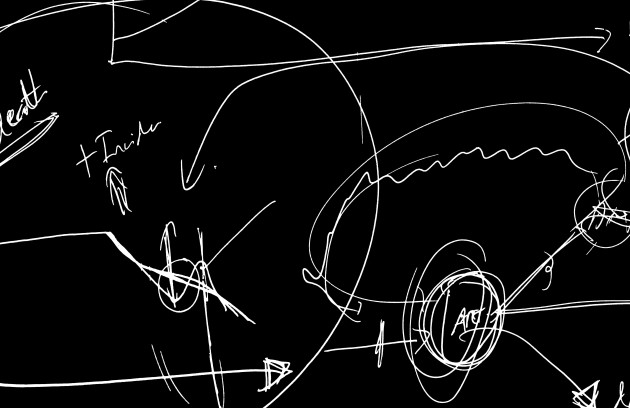 Fast-moving, fascinating and oftentimes quite funny, this book beautifully covers the search for and discovery of the Higgs Boson. Carroll explains how we should think of the Universe in terms of fields rather than particles, and how symmetries and symmetry breaking gear up out the rules that govern the cosmos. When I first read this, I did so in two days, then had to read information technology again a few weeks later to embrace all the things I had missed the starting time time!
Fast-moving, fascinating and oftentimes quite funny, this book beautifully covers the search for and discovery of the Higgs Boson. Carroll explains how we should think of the Universe in terms of fields rather than particles, and how symmetries and symmetry breaking gear up out the rules that govern the cosmos. When I first read this, I did so in two days, then had to read information technology again a few weeks later to embrace all the things I had missed the starting time time!
Longitude by Dava Sobel
Suggested past José Monteiro, STEM Potential Coordinator
 Something I have always enjoyed is looking at maps and planning road trips past bike or car. It is difficult to go lost now nosotros can all carry phones with GPS receivers in our pockets. Until the 18th century, many lives were lost at sea equally at that place was non a reliable way to know a ship'southward exact location. This book tells the story of the quest to solve this problem. Information technology focuses on the life of John Harrison who worked all his life to accomplish this. Yous read it but similar you would read a novel following Harrison's achievements and setbacks trying to convince others that his ideas would work. More than than presenting scientific noesis, this book shows a thrilling instance of personal work done when solving scientific and technical issues. It may fifty-fifty go some people interested in navigation and clock making!
Something I have always enjoyed is looking at maps and planning road trips past bike or car. It is difficult to go lost now nosotros can all carry phones with GPS receivers in our pockets. Until the 18th century, many lives were lost at sea equally at that place was non a reliable way to know a ship'southward exact location. This book tells the story of the quest to solve this problem. Information technology focuses on the life of John Harrison who worked all his life to accomplish this. Yous read it but similar you would read a novel following Harrison's achievements and setbacks trying to convince others that his ideas would work. More than than presenting scientific noesis, this book shows a thrilling instance of personal work done when solving scientific and technical issues. It may fifty-fifty go some people interested in navigation and clock making!
Breakthrough past Manjit Kumar
Suggested by Scott Marley, Outreach Leader
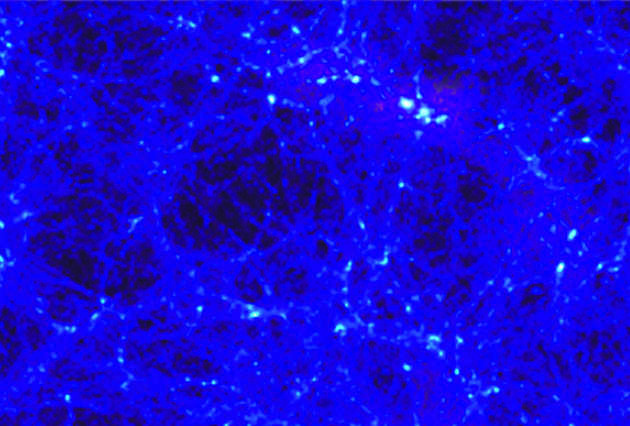 Although it covers the bones science of quantum mechanics, this book is really nearly the incredible characters involved in the theory'south development. Focussing on the great rivalry between Einstein and Bohr, this roller-coaster of a book follows a wide bandage of characters as they try to determine the truthful nature of reality. It reminds us that science is carried out by real people, with all the drama and emotion that entails.
Although it covers the bones science of quantum mechanics, this book is really nearly the incredible characters involved in the theory'south development. Focussing on the great rivalry between Einstein and Bohr, this roller-coaster of a book follows a wide bandage of characters as they try to determine the truthful nature of reality. It reminds us that science is carried out by real people, with all the drama and emotion that entails.
Stalk Volume Listing Physics (PDF)
Photo ane by Gerd AltmannfromPixabay; Photograph 2 free image Pixabay; Photo 3 by 272447fromPixabay; Photo 4 Royal College London; Photograph 5 by Mokkafuchs fromPixabay Photo half dozen Imperial College London
Inferior past Angela Saini
Suggested by Medina Wane, Research Postgraduate Life Science
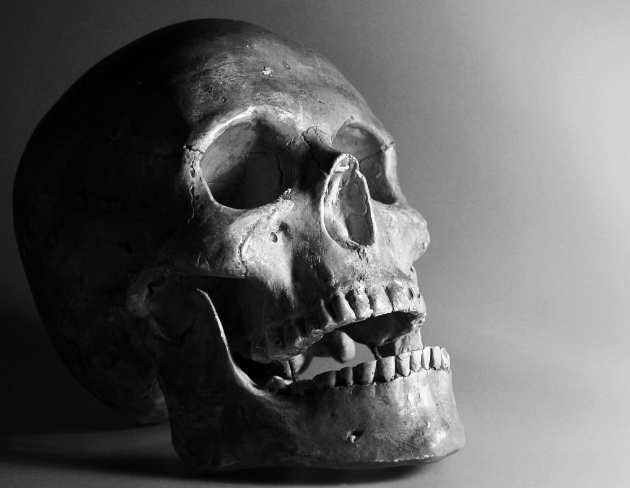 Our view of what makes women and men dissimilar is shaped by many things including culture, media, and personal experience, merely likewise science. As a biological scientist and woman in scientific discipline myself, I was very curious about what science tells us about these differences. In this book, Angela Saini lays out the science, but also some of the flaws behind it. Science is often represented as beingness objective, only equally Angela Saini explains, the science behind sex differences is muddled with historical and mod biases. Biased perceptions of women influence how scientific discipline is conducted which in plough influences how we view women in gild. I recommend this book for everyone every bit it'southward very idea-provoking and easy to dip in and out of. I think information technology's especially of import for those interested in condign scientists to run across how much of an bear on science can have and how self-critical we must be when carrying out inquiry.
Our view of what makes women and men dissimilar is shaped by many things including culture, media, and personal experience, merely likewise science. As a biological scientist and woman in scientific discipline myself, I was very curious about what science tells us about these differences. In this book, Angela Saini lays out the science, but also some of the flaws behind it. Science is often represented as beingness objective, only equally Angela Saini explains, the science behind sex differences is muddled with historical and mod biases. Biased perceptions of women influence how scientific discipline is conducted which in plough influences how we view women in gild. I recommend this book for everyone every bit it'southward very idea-provoking and easy to dip in and out of. I think information technology's especially of import for those interested in condign scientists to run across how much of an bear on science can have and how self-critical we must be when carrying out inquiry.
Race later engineering science by Ruha Benjamin
Suggested by Ahreum Jung, Invention Room Associate: Hacking and Making, Student Recruitment and Outreach
 From everyday apps to complex algorithms, Ruha Benjamin cuts through tech-industry hype to understand how emerging technologies can reinforce White supremacy and deepen social inequity. Benjamin argues that automation, far from being a sinister story of racist programmers scheming on the dark web, has the potential to hide, speed up, and deepen bigotry while appearing neutral and even benevolent when compared to the racism of a previous era. Presenting the concept of the "New Jim Code," she shows how a range of discriminatory designs encode inequity by explicitly amplifying racial hierarchies; past ignoring simply thereby replicating social divisions; or by aiming to fix racial bias but ultimately doing quite the opposite. Moreover, she makes a compelling instance for race itself as a kind of engineering, designed to stratify and sanctify social injustice in the compages of everyday life. This illuminating guide provides conceptual tools for decoding tech promises with sociologically informed skepticism. In doing then, it challenges us to question non only the technologies we are sold but also the ones we ourselves manufacture.
From everyday apps to complex algorithms, Ruha Benjamin cuts through tech-industry hype to understand how emerging technologies can reinforce White supremacy and deepen social inequity. Benjamin argues that automation, far from being a sinister story of racist programmers scheming on the dark web, has the potential to hide, speed up, and deepen bigotry while appearing neutral and even benevolent when compared to the racism of a previous era. Presenting the concept of the "New Jim Code," she shows how a range of discriminatory designs encode inequity by explicitly amplifying racial hierarchies; past ignoring simply thereby replicating social divisions; or by aiming to fix racial bias but ultimately doing quite the opposite. Moreover, she makes a compelling instance for race itself as a kind of engineering, designed to stratify and sanctify social injustice in the compages of everyday life. This illuminating guide provides conceptual tools for decoding tech promises with sociologically informed skepticism. In doing then, it challenges us to question non only the technologies we are sold but also the ones we ourselves manufacture.
Superior by Angela Saini
Suggested byMedina Wane, Enquiry Postgraduate Life Science
 This is a very thought-provoking read on how science has been used to justify racism historically and in modern times. Angela Saini explores the concept of 'race' from historical times to modern times and makes you lot question what y'all think you know about race. It's a great read but tin can definitely exist quite hard-hitting. I found her caption of how scientific discipline is tied to politics, money, and power very interesting because often scientific discipline is idea of as separate from politics. From artificial intelligence to medicine, this book shows u.s. how big an bear on scientific racism had, and still has, on our society.
This is a very thought-provoking read on how science has been used to justify racism historically and in modern times. Angela Saini explores the concept of 'race' from historical times to modern times and makes you lot question what y'all think you know about race. It's a great read but tin can definitely exist quite hard-hitting. I found her caption of how scientific discipline is tied to politics, money, and power very interesting because often scientific discipline is idea of as separate from politics. From artificial intelligence to medicine, this book shows u.s. how big an bear on scientific racism had, and still has, on our society.
STEM Book List Social Science (PDF)
Photo i by Petra Blahoutová fromPixabay; Photograph 2 by Owen Billcliffe Imperial College London ; Photo 3 by Thomas Angus Imperial College London
martinezwitemagen1991.blogspot.com
Source: https://www.imperial.ac.uk/be-inspired/schools-outreach/secondary-schools/post-16-resources-and-events/stem-book-list/
0 Response to "College Classes on the Nature of Reality Reading List"
Post a Comment